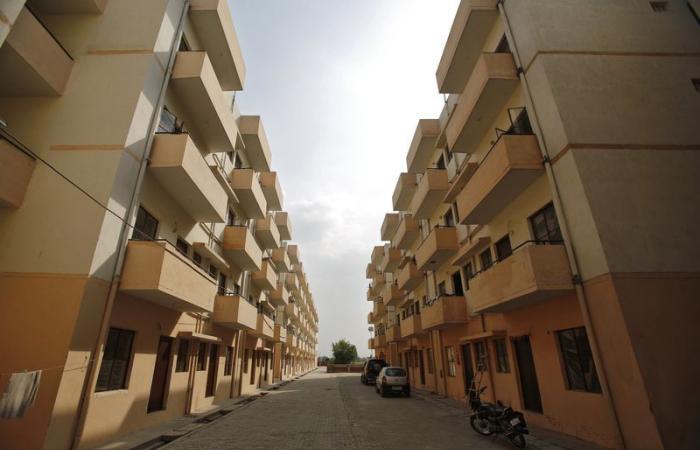
Average house prices in India are expected to rise steadily over the next few years, mainly due to demand from wealthy individuals, while rising costs of living will make homeownership unaffordable for most people, according to a Reuters poll. .
As India's middle class tightens its belt, reducing its purchases of everything from tea to two-wheelers, due to soaring inflation, the richest 1%, who own 40% of the country's wealth, s are tearing up homes in cities where jobs are well paid.
While that's enough to support rising prices in the short term, real estate analysts say there are limits to what the wealthy can do to maintain demand in an already slowing economy.
After increasing 4.3% last year, real estate prices in India – that is, homes located in major cities – are expected to rise 7% this year, from 6.5%. in 2025 and 7.5% in 2026, according to the median forecasts of the survey conducted from November 12 to 29 among 12 real estate market experts.
This outlook is largely unchanged from the September survey.
“The segment that is driving this price increase is the luxury segment. And this is going to continue for some time to come, but the overall forecast that we are seeing is very optimistic,” said Ajay Sharma, director General Manager of Valuation Services at Colliers International.
However, Mr Sharma said there were clear signs most people were struggling with the cost of living.
“No one is talking about the structural problems in demand. Once the cream of the crop stop buying, you will see a massive drop in sales.”
Meanwhile, rents are expected to rise even faster than house prices, by 7.5% to 10% over the coming year, according to the median range given by 11 real estate experts.
“The pressure on housing affordability will push more people to opt for rental, driving up demand in this segment,” said Sunita Mishra, head of research at Housing.com and PropTiger.com.
With developers focusing on the luxury market, the shortage of affordable housing continues to sideline many first-time buyers, particularly those in middle- and lower-income groups.
“The fact that most of the new launches and new inventory available in urban centers across the country are in the premium segment will also have a profound impact, fueling rental growth,” Ms. Mishra added.
While the inability to build enough affordable housing is a common problem in most countries, the scale of the challenge is staggering in India, home to the world's largest population, with more than 1.4 billion people.
Asked about the evolution of housing accessibility for first-time buyers over the coming year, eight real estate experts estimated that the situation would deteriorate and only four that it would improve.
A substantial cut in interest rates could ease pressure on buyers, but economists don't expect the Reserve Bank of India to cut rates by more than 50 basis points, and probably not until early of next year.
(Other stories from the Reuters fourth quarter housing poll)





